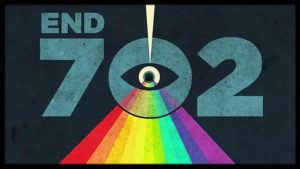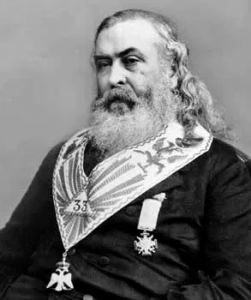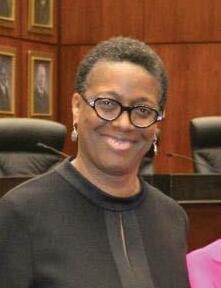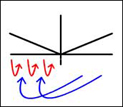Surprising Facts About the Political Commentator Noam Chomsky, From the Book ”Do as I Say (Not as I Do)”
by Edward Ulrich, updated February 22, 2020

The political activist Noam Chomsky. (Image: Wikipedia)
Political commentator, linguist, and tenured MIT professor Noam Chomsky is a popular literary figure trumpeted by many including mainstream news outlets as being a sophisticated and highly influential anti-government activist who lectures about perils of capitalism and America being a police state.
However, a number of reasons show Chomsky’s persona as essentially being a charade, including his portrayal of himself as an “anarchist-socialist dissident,” due to his profiting heavily from communicating his messages and enjoying most of the perks of the capitalistic society which he specifically criticizes, and the fact that he has profited heavily by taking millions of dollars from working for the Pentagon while at the same time denouncing it as evil institution.
[Also see the article Noam Chomsky: Controlled Asset of the New World Order.]
Following are points describing the information contained in the chapter of the book Do as I Say (Not as I Do) speaking about Noam Chomsky:
— Chomsky described the Pentagon as “one of the most evil institutions in world history,” “the most hideous institution on this earth,” which “constitutes a menace to human life.”(7) And he has also made statements that the military has no business being on college campuses whether for recruiting, research, or helping students pay for college, and professors should fight racism, poverty and repression rather than working for the Pentagon.(8) However, Chomsky has been paid millions by the Department of Defense over the past forty years, mainly through his work at the Pentagon funded MIT Research Laboratory of Electronics which even offered perks that other departments in the school did not. Chomsky’s first books, Syntactic Structures, and Aspects of the Theory of Syntax were written with grants from the U.S. Army, the Air Force, and the Office of Naval Research. He worked with his wife who is also a linguist on a DoD-funded project called “Baseball,”(11) and helped to develop “command and control” computer systems used to “support our forces in Vietnam” through making it easier for commanders’ queries to be translated into a language that computers could deal with.(12)
— In 1967 Chomsky challenged fellow professors to take moral responsibility for their actions, denounce the Pentagon, and admit they were compromised by advising the government, but then a Columbia Professor George Steiner wrote a letter published in the New York Review of Books asking Chomsky if he would then stop teaching at MIT, but Chomsky balked at the suggestion despite his having the option to teach at essentially any other university in the country of this choosing.
— When questioned by Scweitzer about his associations with military funding, Chomsky surprisingly responded with a clearly false rationalization of “I think we should be responsible for what we do, not for the bureaucratic question of who stamps the paycheck,” ... “Do you think you are not working for the Pentagon? Ask yourself about the origins of the computer and the internet you are now using.”
— Chomsky also contradicts himself when speaking about issues of class struggle. He describes himself as a “socialist” whose goal is a “post-capitalist society,” calling capitalism “a grotesque catastrophe” .. “crafted to induce hopelessness resignation, and despair.” He speaks in terms of “us” vs “them” with “them” being the top 10 percent of taxpayers, despite Chomsky being among the top 2 percent in the United States in net wealth, and the location of his primary residence being in an extremely affluent and exclusive wooded suburb of Lexington, Massachusetts.(15) He has also set up trust funds and assigned copyrights to others in his family to keep his wealth from being taxed despite being a strong proponent of estate taxes and income redistribution.
— Chomsky has been critical of private property rights as well, claiming them only to be a tool for the rich (contrary to the views of American statesman such as Jefferson, Hamilton, and Adams.) He also claims that intellectual property rights should only be thought of in negative terms such as “protectionism”,(25) however his works are clearly labeled with warnings about copyright infringement, it is usually necessary to pay a fee to download information from his website, and he gives opportunities to “sub-license” the material for a fee.(26)
— Despite Chomsky being strongly outspoken about corporations being “private tyrannies,” he has invested in all sorts of businesses that he rails against including oil companies, military contractors and pharmaceuticals, rather than opting for other investment options such as money market funds or government bonds which do not have as high of a return.(29) When asked about his investment portfolio issues, he responded, “Should I live in a cabin in Montana?” suggesting that there is just no way around making unethical investments.
— Despite Chomsky being outspoken about the oppression of women and minorities, for over half a century he has personally hired or approved staff at the linguistics and philosophy departments that he had created at MIT, and it is shown that in the early years his hires were almost exclusively white males, and even today it is shown that the MIT Linguistics department is “top heavy” with white males while the support staff is largely made up of women.(32)
— Chomsky is very outspoken about defending free speech in the Western world where it already exists, but he describes Communist countries such as North Vietnam essentially only in glowing terms such as in his book At War with Asia while not criticizing their extremely repressive traits.
— It is described how Chomsky went on a speaking tour of the Middle East shortly after the 9/11 attacks, giving talks stating that America’s Middle East policies had provoked the attacks and stating “the numbers of victims of U.S. savagery are right up to the present moment. For the first time, almost in two centuries, the guns have been pointed in the opposite direction.”
Citations
(7) Richard Todd, “The ‘Ins’ and ‘Outs’ at MIT,” New York Times, May 18, 1969.
(8) Israel Shenker, “A Linquist Expert Who Believes That Academics Should Also Be Activists,” New York Times, October 27, 1968.
(11) Bert F. Green, Digital Computers in Research: An Introduction for Behavioral and Social Scientists ( McGraw-Hill, 1963 ).
(12) Background research comes from Chris Knight, “Noam Chomsky; Politics or Science?” What Next? Marxist Discussion Journal 26 (2003): pp. 1-29.
(15) For an example of his class-warfare “us versus them” formula, see Bill Frezza, “A Lion in Winter,” The Tech [MIT student newspaper], February 20, 2004.
(25) “Globalization and Its Discontents,” Noam Chomsky debates with Washington Post readers, available on chomsky.info.
(26) http://www.chomsky.info/copyright.html
(29) In 2002, Chomsky cosigned a letter stating, “We recently learned that through our retirement funds invested in TIAA-CREFF that we have been made inadvertent supporters” of the government in Burma. The letter refers to the fact that TIAA-CREFF owned shares in the oil giant Unocoal, which had investments in that country. The TIAA-CREFF fund in question was the stock fund.
(32) Parini, “Noam Is an Island,” p. 39.
(8) Israel Shenker, “A Linquist Expert Who Believes That Academics Should Also Be Activists,” New York Times, October 27, 1968.
(11) Bert F. Green, Digital Computers in Research: An Introduction for Behavioral and Social Scientists ( McGraw-Hill, 1963 ).
(12) Background research comes from Chris Knight, “Noam Chomsky; Politics or Science?” What Next? Marxist Discussion Journal 26 (2003): pp. 1-29.
(15) For an example of his class-warfare “us versus them” formula, see Bill Frezza, “A Lion in Winter,” The Tech [MIT student newspaper], February 20, 2004.
(25) “Globalization and Its Discontents,” Noam Chomsky debates with Washington Post readers, available on chomsky.info.
(26) http://www.chomsky.info/copyright.html
(29) In 2002, Chomsky cosigned a letter stating, “We recently learned that through our retirement funds invested in TIAA-CREFF that we have been made inadvertent supporters” of the government in Burma. The letter refers to the fact that TIAA-CREFF owned shares in the oil giant Unocoal, which had investments in that country. The TIAA-CREFF fund in question was the stock fund.
(32) Parini, “Noam Is an Island,” p. 39.
Article Tree
| Media Bias Effecting Awareness of Important Issues |
| A Summary of the Book ”Do as I Say (Not as I Do)” |
| Surprising Facts About the Political Commentator Noam Chomsky, From the Book ”Do as I Say (Not as I Do)” |








